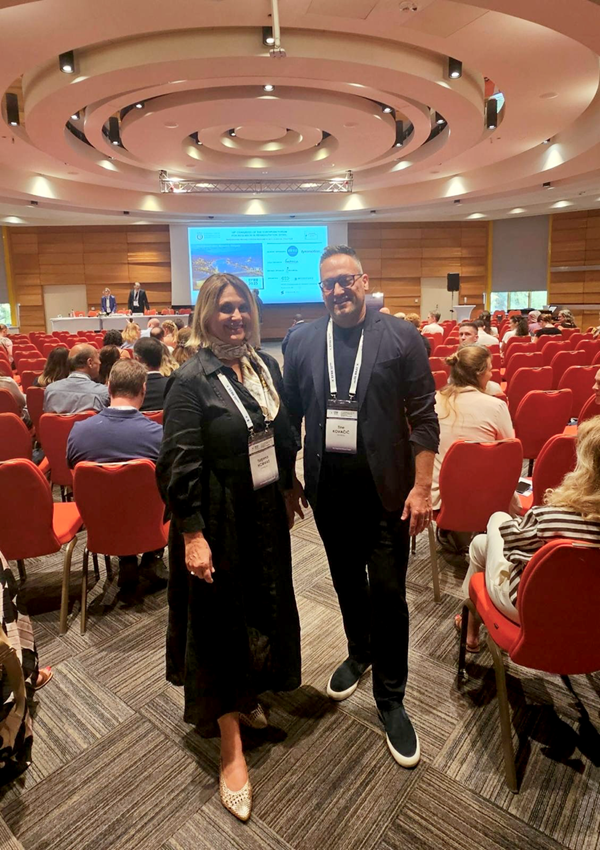
Alma Mater Europaea Presents Its Work at EFRR 2025
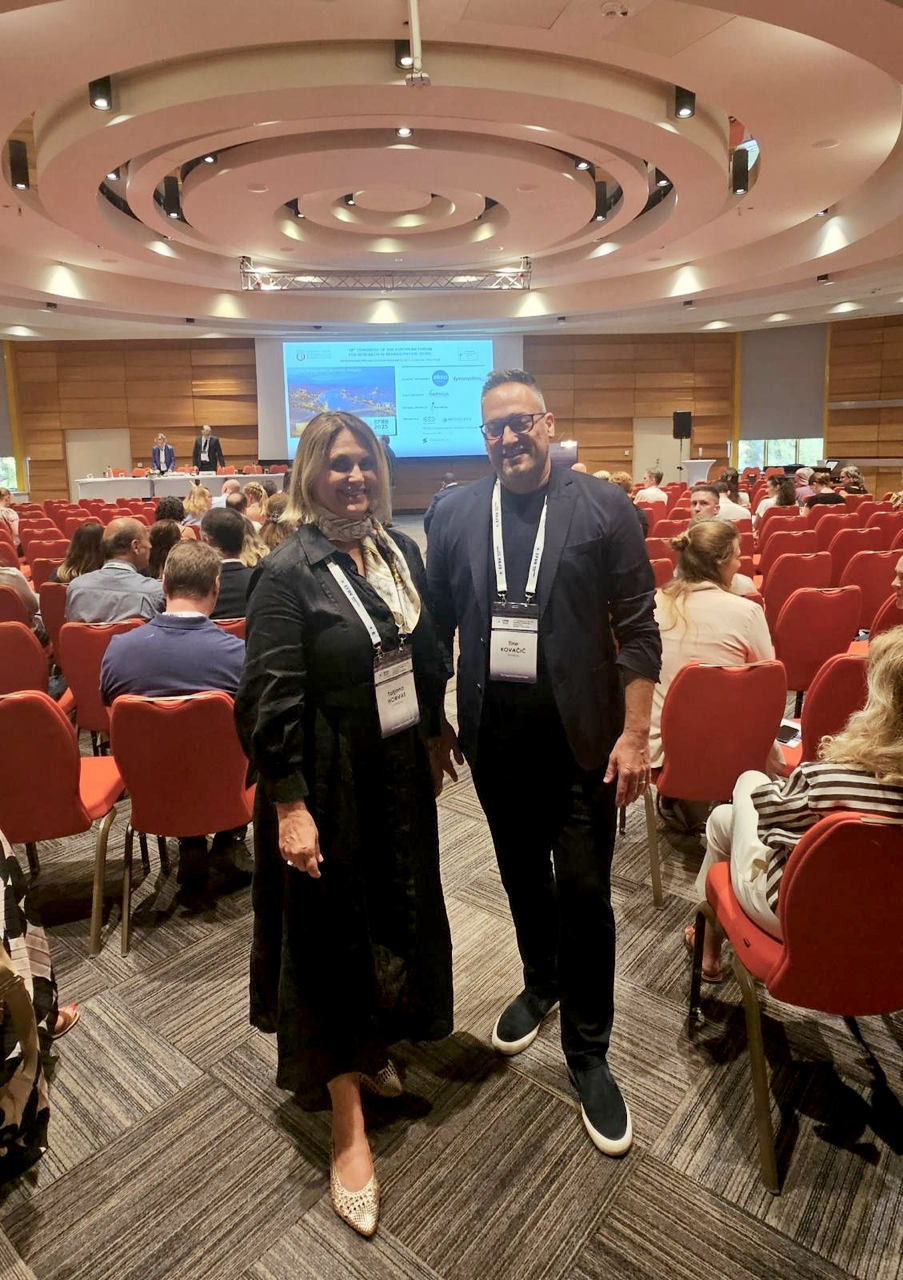
At the 18th European Forum for Research in Rehabilitation (EFRR 2025), held from August 28 to 31 in Budapest, Alma Mater Europaea was represented by Prof. Dr. Tine Kovačič and Lecturer Tatjana Horvat.
Dr. Tine Kovačič, Head of the Master’s Programme in Health Sciences, presented the study “Effects of a Structured Exercise Intervention on Functional Balance in Individuals with Intellectual and Developmental Disabilities: A Single-Blind Randomized Controlled Trial,” which highlights how structured exercise can significantly improve functional balance in individuals with intellectual and developmental disabilities.
Lecturer Tatjana Horvat, Head of the Therapy Institute at Alma Mater, presented the research “Long-Term Effects of Neurophysiotherapy and Robotic-Assisted Therapy on Gait and Upper Limb Function After Stroke”, emphasizing the importance of modern rehabilitation approaches for stroke patients.
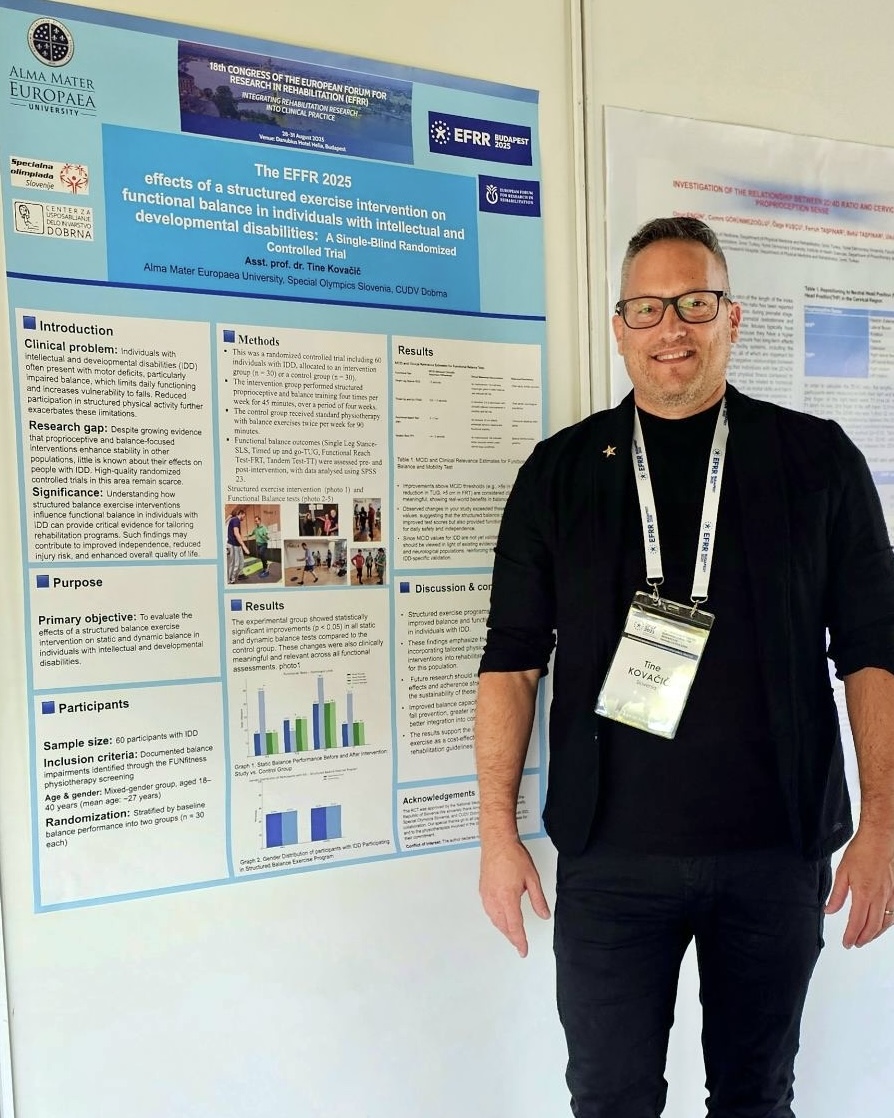
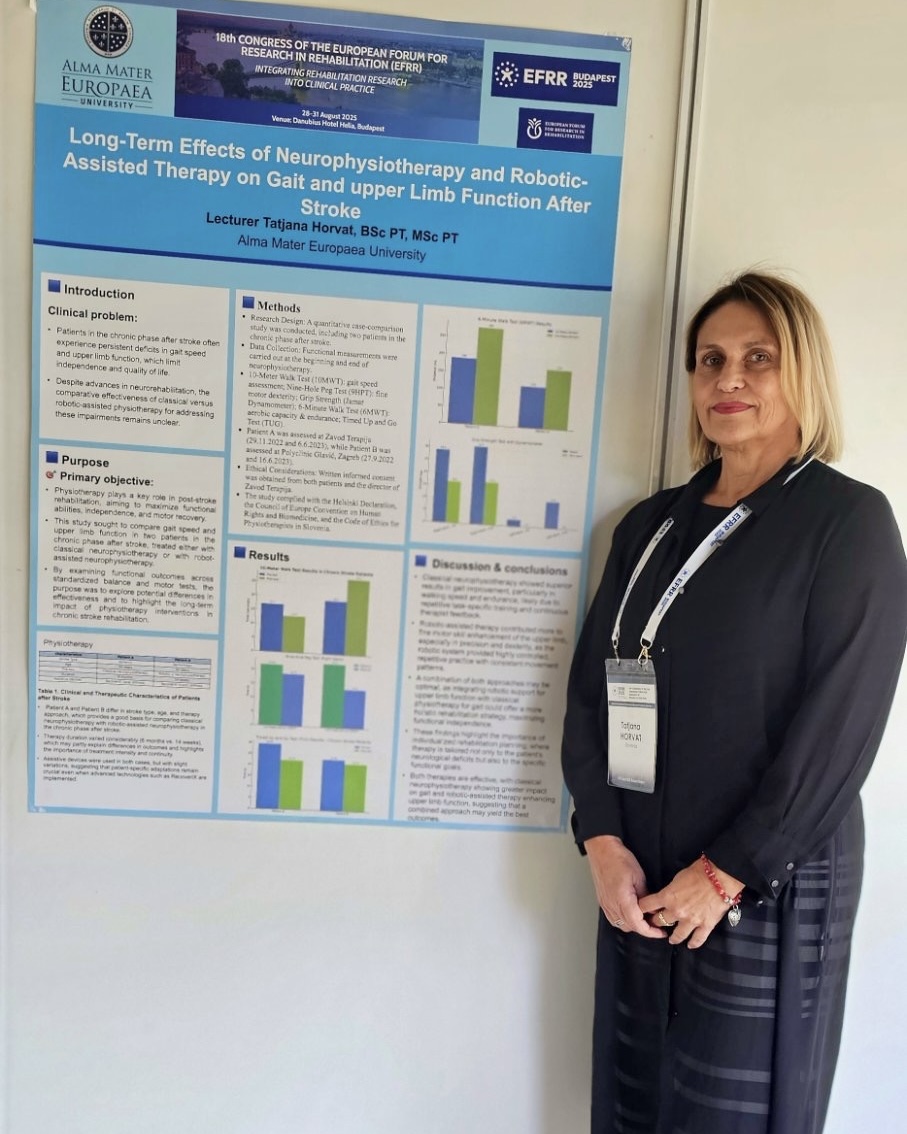
They also participated in a workshop on new approaches in gait analysis, led by Dr. Imre Cikajlo (URI Soča, University of Nova Gorica) and Dr. Edward Lemaire (Ottawa Hospital Research Institute, Canada, and University of Ottawa). The workshop presented the latest advancements in computer-assisted gait analysis, including passive markers, force plates (6DOF), and dynamic gait models, focusing on translating these findings into clinical practice.
The congress brought together leading researchers, clinicians, academics, and policymakers worldwide to discuss the future of rehabilitation medicine. Two plenary topics stood out:
- Artificial intelligence in rehabilitation, which can enhance the planning and monitoring of individualized programs (Prof. Mauro Zampolini), and
- Exercise is the foundation of rehabilitation. It affects the immune, cognitive, neurological, and psychosocial systems, improving overall quality of life (Prof. Dr. Frederike van Wijck, Glasgow Caledonian University).
More about the congress HERE.
Experts from the Cochrane Rehabilitation Institute emphasized the importance of precisely defining rehabilitation and using the GUIDE-Rehab tool, while also highlighting the need to integrate health policy research, big data, and artificial intelligence to strengthen evidence for practice. Dr. Helena Burger particularly emphasized systematic clinical data collection (URI Soča, University of Ljubljana, Faculty of Medicine).
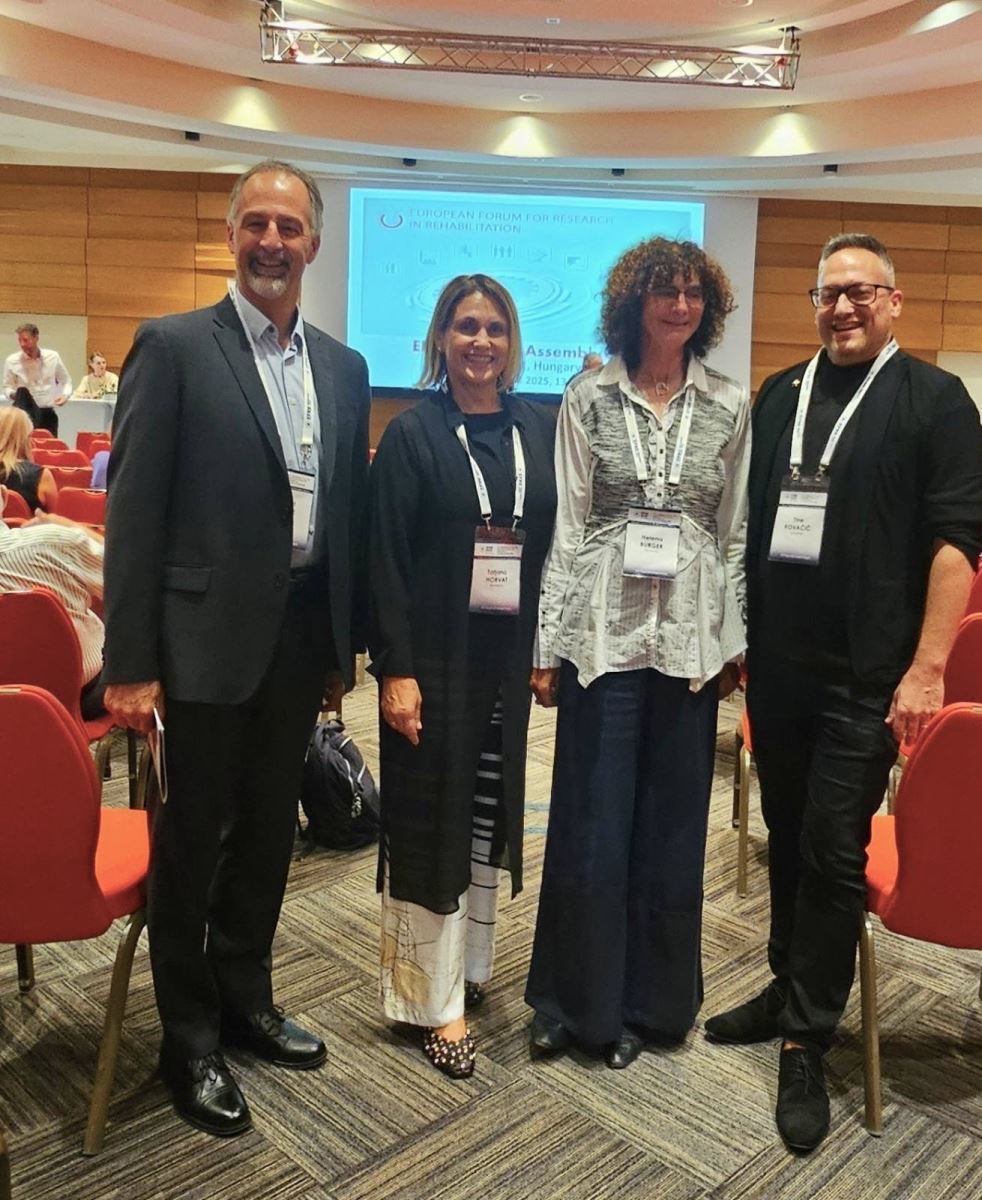
In the photo, from left to right: Dr. Edward Lemaire (Canada), Lecturer Tatjana Horvat, Dr. Helena Burger (former EFRR President), Dr. Tine Kovačič.
With its interdisciplinary approach, the event once again demonstrated that the future of rehabilitation relies on integrating scientific evidence, innovative technologies, and person-centered therapeutic approaches. Alma Mater Europaea University actively shapes new pathways from research to clinical practice through its Health Sciences and Physiotherapy programs across all three Bologna cycles.
